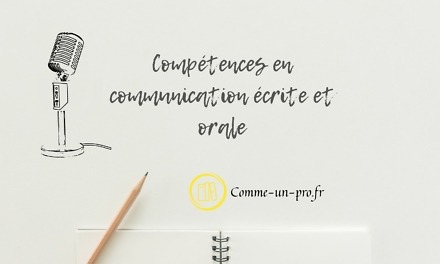Writing at work is not as easy as you might think. Indeed, it's not like writing to a close friend or on social media. This is why it is important to try to improve your professional writing on a daily basis. In fact, the professional world demands that work writing be effective. Because the reputation of the company in which you work depends on it. Discover in this article how to improve the sentences of a writing at work.
Forget figures of speech
To improve the sentences of a working writing, start by setting aside the figures of speech because you are not in the context of a literary writing. Therefore, you will not need metaphor, allegory, metonymy, etc.
When you take the risk of using figures of speech in your writing at work, you risk appearing pretentious in the eyes of your reader. Indeed, this one will consider that you remained in the era where jargon knew how to impose respect and fear on the interlocutors.
Put the essential information at the beginning of the sentence
To improve the sentences in your work writing, consider putting the information at the beginning of the sentence. It will be a way of changing your style and separating yourself from the classic subject + verb + complement.
To do this, several options are available to you:
Use of the past participle as an adjective : for example, interested in your offer, we will contact each other again next week.
The complement set at the beginning : on February 16, we sent you an email ...
The sentence in the infinitive : To follow up on our interview, we are announcing the validation of your application ...
Using the impersonal form
Improving your writing at work also means thinking about using an impersonal formula. It will then be a question of starting with "he" which does not designate anything or anyone. As an example, it is agreed that we will recontact the supplier in a week, it is necessary to revisit the procedure, etc.
Replace boilerplate verbs
Also enrich your professional writing by banning master verses such as "to have", "to be", "to do" and "to say". In reality, these are verbs that do not enrich your writing and force you to use other words in order to make the sentence more precise.
So replace the boilerplate verbs with verbs with a more precise meaning. You will find many synonyms which will allow you to write with more precision.
Exact words instead of periphrases
Periphrasis refers to using a definition or a long phrase instead of a word that could sum it all up. For example, some use the wording “he who reads” instead of “the reader”, “it has been brought to your attention…” instead of “you have been informed…”.
When sentences get too long, the recipient can quickly get lost. On the other hand, the use of concise and precise words will greatly facilitate the reading.


